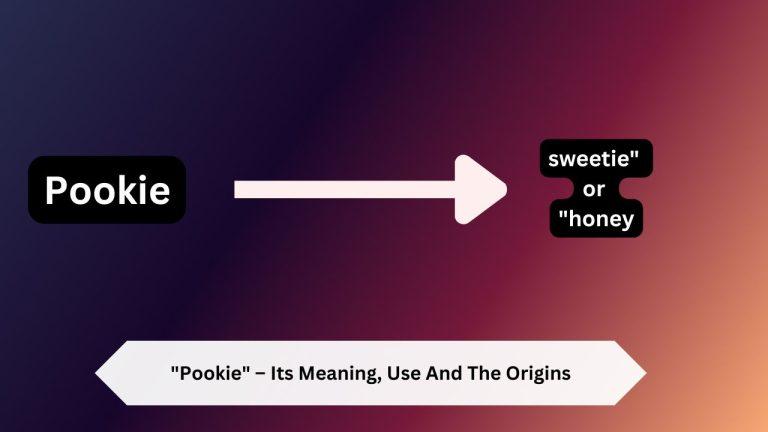Bearer of Bad News: Definition and Meaning
The bearer of bad news is a role I dread, yet sometimes must embrace. At a joyful family gathering, my phone buzzes with a message: our long-term project has been cancelled. My heart sinks as I contemplate sharing this with my team. How can I break this news without crushing their spirits?
The weight of this information feels heavy, contrasting sharply with the laughter around me. I stand here, holding a secret that will change everything. Delivering disappointing information is never easy. It’s like having something no one wants to touch. But it’s often unavoidable. I must find the right words and approach to share this news.
Bearer of Bad News Definition

The phrase “to be the bearer of bad news” carries a rich history and deep cultural significance. It encapsulates the complex role of messengers throughout time and highlights the emotional intricacies involved in sharing complex information.
Defining the Role of a ‘Bearer’
In this context, a bearer is more than just a messenger. They’re the conduit of crucial information, tasked with not only delivering a message but also managing its emotional impact. This role requires a delicate balance of clarity and sensitivity.
The Heavy Connotations of ‘Bad News’
Bad news inherently carries negative weight. It’s information that’s unwelcome, disappointing, or potentially distressing. The use of this idiom acknowledges the gravity of the situation and prepares the recipient for what’s to come.
The Emotional Weight of Delivering Unpleasant Messages

Sharing difficult news is no small feat. It requires emotional intelligence and psychological resilience to navigate the potential reactions of the recipient while managing one’s feelings.
- Prepare emotionally: Take time to process your feelings before sharing the news.
- Practice empathy: Put yourself in the recipient’s shoes to better understand their potential reactions.
- Stay composed: Maintain a calm demeanor, even if the recipient becomes upset.
Historical Context and Evolution of the Phrase
The evolution of “to be the bearer of bad news” reflects changing societal attitudes and communication norms over time.
Ancient Messengers and Their Perilous Duty
In ancient times, messengers often faced physical danger when delivering bad news. They were sometimes punished or even killed, regardless of their lack of responsibility for the message’s content.
The Modern Interpretation of Delivering Bad News
Today, the phrase has evolved to focus on the emotional and psychological challenges of sharing difficult information. While physical danger is no longer a concern, the emotional weight remains significant.
‘To Be the Bearer of Bad News’ in Conversations and Literature
This idiom is crucial in everyday communication and storytelling, serving as a tool for emotional preparation and dramatic tension.
Common Usage in Everyday Language
In daily life, we often use this phrase to:
- Soften the blow of disappointing news
- Show empathy and understanding
- Prepare the listener for what’s to come
The Dramatic Role in Storytelling
In literature and film, the bearer of bad news often catalyzes plot development. Their arrival can signal turning points, create conflict, or drive character growth.
Strategies for Delivering Bad News Effectively

When faced with the task of sharing difficult information, consider these approaches:
- Choose the right time and place: Ensure privacy and minimize distractions.
- Be direct but compassionate: Avoid beating around the bush while showing empathy.
- Provide context: Explain the circumstances surrounding the news.
- Allow for reactions: Give the recipient time to process and respond.
- Offer support: Be prepared to provide resources or assistance if needed.
Cultural Variations in Delivering Bad News
Different cultures approach the delivery of bad news in various ways:
- High-context cultures may prefer indirect communication and rely more on non-verbal cues.
- Low-context cultures often value direct, explicit communication of bad news.
- Some cultures prioritize group harmony and may soften bad news to maintain relationships.
Understanding these differences is crucial in our increasingly interconnected world.
The Psychology Behind Receiving Bad News

Recipients of bad news often go through stages similar to the grief process:
- Shock and denial
- Anger or frustration
- Bargaining
- Depression or sadness
- Acceptance
Recognizing these stages can help bearers of bad news respond appropriately and provide necessary support.
The Impact of Technology on Delivering Bad News
Digital communication has transformed how we share information, including bad news:
- Emails and text messages can feel impersonal for serious news.
- Video calls offer a middle ground between in-person and written communication.
- Social media can spread bad news quickly, sometimes before official channels.
Consider the pros and cons of each method when deciding how to deliver sensitive information.
Ethical Considerations in Sharing Difficult Information
Delivering bad news comes with ethical responsibilities:
- Honesty: Provide accurate information without sugarcoating.
- Timeliness: Share important news promptly to avoid rumors or misinformation.
- Respect for privacy: Consider who needs to know and maintain confidentiality when appropriate.
- Fairness: Ensure equitable treatment in how and when news is shared.
Learning from Experience: Case Studies in Delivering Bad News
Examining real-world examples can provide valuable insights:
- Healthcare: How doctors deliver complex diagnoses to patients and families.
- Business: CEOs announcing company layoffs or closures.
- Education: Teachers inform students of academic struggles or failures.
- Personal relationships: Breaking up or sharing news of a loss.
Each scenario offers lessons in compassion, clarity, and professionalism.
Why you don’t touch these amazing posts:
Best Ways to Replace “Sunrise and Sunset”
Conclusion
To be the bearer of bad news is a challenging yet essential role in human communication. By approaching these difficult conversations with empathy, preparation, and cultural sensitivity, we can navigate these moments more effectively. While the news itself may be unavoidable, how we deliver it can make a significant difference in its impact and reception.
FAQs
What does it mean to be the bearer of bad news?
Being the bearer of bad news means you’re the person responsible for delivering unwelcome or unpleasant information to others. It’s often an uncomfortable position, as people may react negatively or blame you for the news you’re conveying.
What is the idiom for bearer of bad news?
The idiom “don’t shoot the messenger” is closely related to being the bearer of bad news. It means you shouldn’t blame or punish the person delivering bad news, as they’re not responsible for the situation. The phrase originated from ancient times.
Is it bearer or barer of bad news?
The correct phrase is “bearer of bad news.” “Bearer” means someone who carries or brings something. “Barer” is a different word meaning more bare or naked. The confusion likely stems from their similar pronunciation, but “bearer” is the correct term in this context.
What is another word for bearer of bad news?
Alternative terms for the bearer of bad news include messenger, harbinger, herald, or announcer of bad news. In more formal contexts, you might use “courier of unfavorable information” or “conveyor of negative tidings.” These all convey the idea of delivering unwelcome news.







